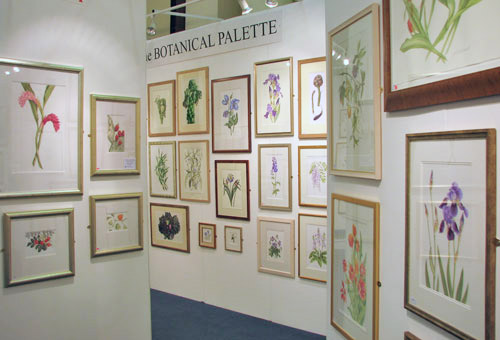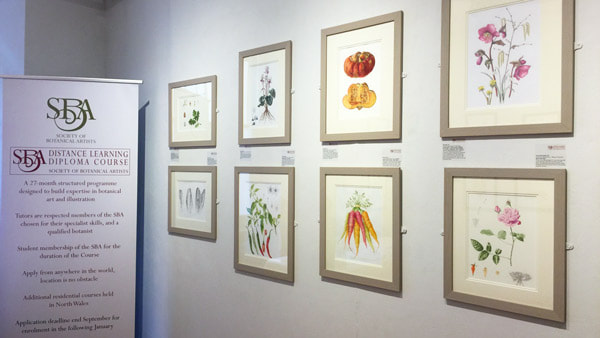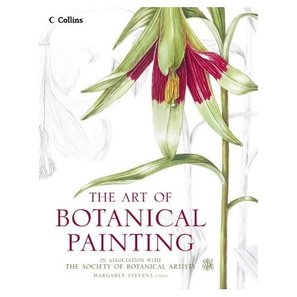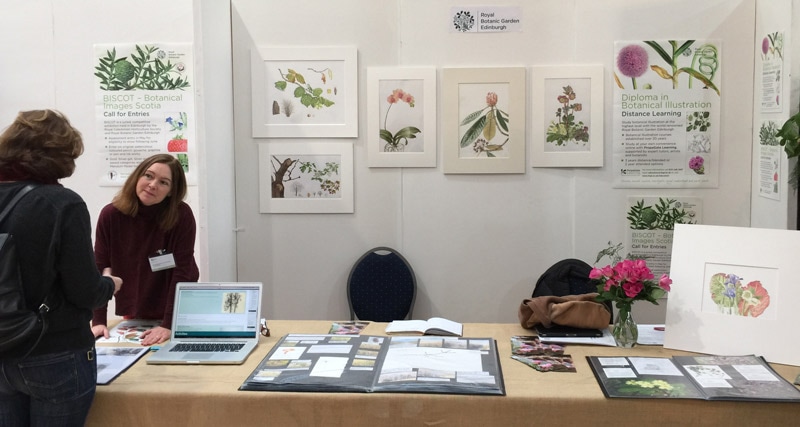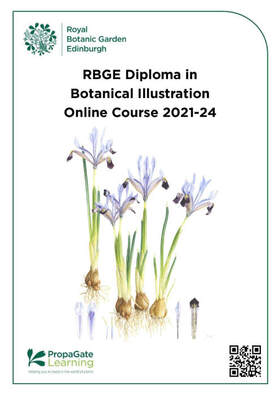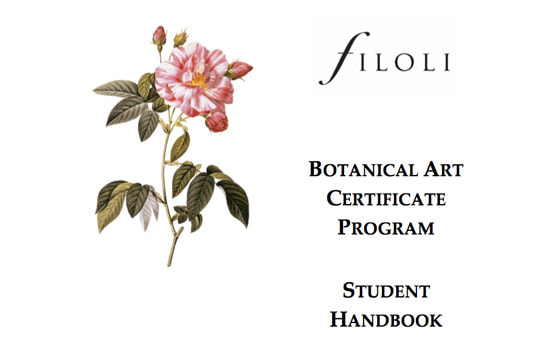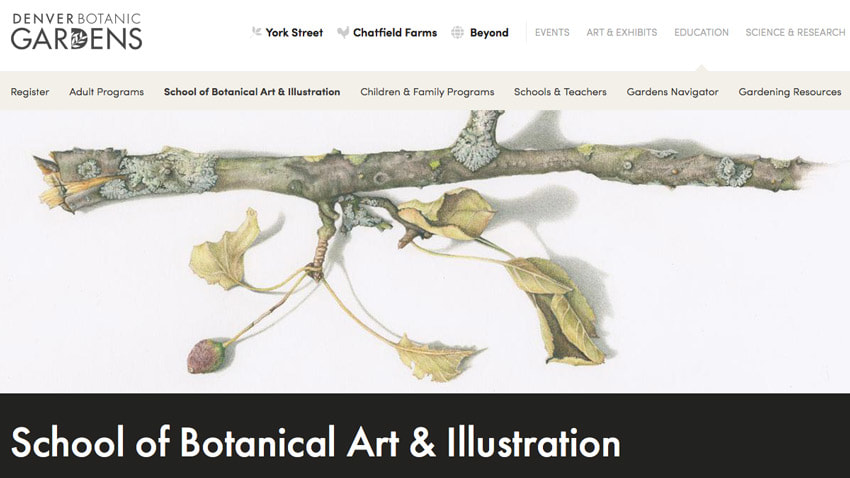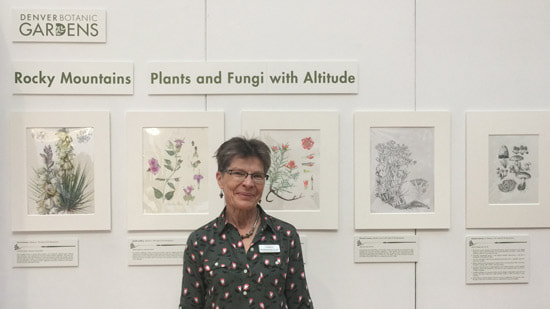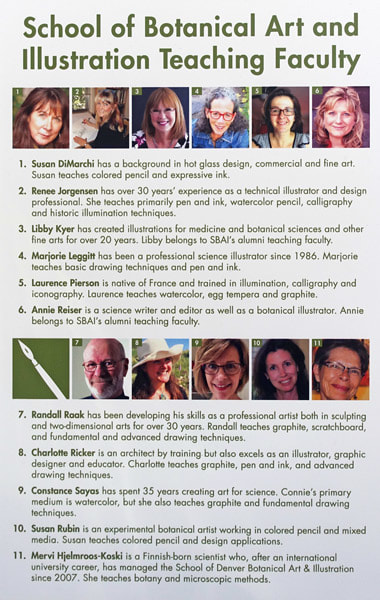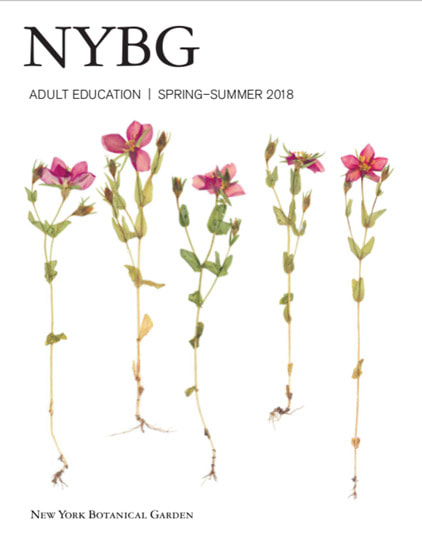- Home
- NEWS
-
HISTORY
- What is Botanical Art?
- What is Botanical Illustration?
- Botanical Art History Books >
- Herbals
- Florilegia and Flora
- Patrons of Botanical Art >
- Past Masters - Botanical Art and Illustration >
- Famous Asian Botanical Artists (600-1900)
- 20th & 21st Century Botanical Artists >
- Botanical Photographers
- Botanical and Herbal Art Online
-
ARTISTS
- Botanical Artists in the UK
- Botanical Artists in North America
- Botanical Artists in Europe
- Botanical Artists in Australia and New Zealand
- Botanical Artists in Asia
- Botanical Artists in Africa
- Botanical Artists in Latin America
- Botanical Printmakers, Photographers, Sculptors et al
- The Jill Smythies Award
- Botanical Artists on Facebook
- Botanical Art Blogs
-
Exhibitions
- Calls for Entries - OPEN exhibitions
- Online Exhibitions >
- RHS Botanical Art & Photography Shows >
- The Shirley Sherwood Gallery of Botanical Art >
- Hunt International Exhibition of Botanical Art & Illustration
-
UK
>
- North America >
- Europe >
- Australasia >
- Asia >
- Africa
- ARCHIVE: World Wide Exhibition of Botanical Art 2018
-
Education
- NEW BOOKS about Botanical Art and Illustration >
-
Best Botanical Art Instruction Books
>
- Tips and Techniques >
- Botanical Art Video Tips >
- Online Botanical Art Instruction >
- International Directory: Botanical Art Teachers
- International Directory of Botanical Art Courses >
- Artist Residencies, Scholarships and Bursaries
- Diplomas and Certificates >
- Distance Learning Courses
- Talks, Lectures & Tours
- Botanical Education on Facebook
- Materials
- Groups
-
Botany
- Why botany matters to artists
- Botany Books for artists >
- Scientific botanical illustration
- Plant Forms and Anatomy
- Plant Evolution and Taxonomy
- Plant Names and Botanical Latin
- Botanical Dictionaries
- How to Identify Plants
- Recording a Plant / Sketchbooks >
- Botanic Gardens & Herbaria >
- Blogs about Plants and Flowers
- Contact
Diploma and Certificate Courses - offered by organisations
in the UK and USA
These are typically structured, systematic and in-depth (long) courses of varying length, quality and cost.
This page covers
This page covers
|
CHECKLISTS AND GUIDELINES about how to
|
SUMMARY LISTINGS of Diploma and Certificate Courses in Botanical Art and/or Illustration
|
GUIDELINES:
How to assess your options and choose a course
IMPORTANT
|
NONE of the Diplomas or Certificates are academically validated within a Regulated Qualifications Framework (RQF) to a specific standardised level of knowledge and competence. They may not follow the normal protocols for externally validated academic Diploma / Certificate Courses
Diplomas based in the UK are not included in the Register of Regulated Qualifications. |
"Diploma" and "Certificate" in this context are just words.
They are NOT in any way academic credentials within the conventional "accredited qualification" sense of these words. READ Is the Course formally accredited within a regulated qualifications framework? BELOW |
|
Those wanting to develop their knowledge, skills and competence in botanical art and illustration often opt for a more structured and in-depth course over a longer period.
In doing so they often look at the "Diploma" and "Certificate" Courses offered by:
|
The MAIN PROBLEM for those wanting to sign up for a course is that although the words might indicate they are pretty similar, the reality is that...
Diploma and Certificate Courses can be VERY different.
|
I RECOMMEND that you research ALL the options for instruction
open to you before signing up and parting with your cash.
Try setting a budget that you can afford for (say) 2 or 3 years
Identify all available options which interest you within that budget
Use the CHECKLIST below to review and score each of the options to produce a shortlist of preferred options
open to you before signing up and parting with your cash.
Try setting a budget that you can afford for (say) 2 or 3 years
Identify all available options which interest you within that budget
Use the CHECKLIST below to review and score each of the options to produce a shortlist of preferred options
The only formal recognised qualifications in botanical art are those acquired at university within a Natural History degree.
a teacher of botanical art
CHECKLIST OF QUESTIONS
I recommend that you ask the same questions of each course and then compare answers
Does the course information:
Does the course information:
- BASELINE SKILL LEVEL: Does the information specify a skill level I need to have before I can start the course and/or indicate my previous artwork will be assessed?
- VENUE/FACILITIES: Where / how will the course will be delivered; what facilities are available?
- COURSE: Is the course part of a validated course? i.e. a module or programme which a degree-awarding body approves to contribute, or lead, to one of their awards.
- SYLLABUS / CONTENT: Does the syllabus indicate the range of content covered by taught and/or private study modules? Is the delivery of syllabus content models structured in a coherent and logical way?
- DESCRIPTION: Does the course description tend to focus on
- EITHER inputs i.e. what the tutor does
- OR learning outcomes i.e. what you will know and be able to do on completing the course?
- EITHER inputs i.e. what the tutor does
- LEARNING OBJECTIVES: Are the learning objectives for every module clearly spelt out?
- OUTCOMES: How does the course define the knowledge, skills and competences that diligent students acquire as an outcome of taking this course i.e. what can you hope to achieve?
- EDUCATIONAL RESOURCES: indicate what resources will be available to assist with learning e.g. course guides; course books; videos; demonstrations
- NAMES OF TUTORS: Does the course state the names and experience of the tutors for the course and/or each specific course / module?
- QUALIFICATIONS TO TEACH: state the TEACHING qualifications of a teacher/tutor for teaching a specific course?
- CONTACT TIME: define standards for how often a student ( or students) will meet with a tutor face to face and for how long (or the equivalent access if distance learning or online). Is the balance between taught lessons and private study indicated?
- ASSESSMENT: How is the acquisition of knowledge, skills and competence is assessed? Is the criteria for course assessment clearly explained?
- FEES: Does the course have one fee or a number of different fees?
- REFUND: indicate whether a refund is available and the terms?
- CONTRACT: Are the terms and conditions of the course contract you will be asked to sign clearly stated BEFORE you pay the course fee?
- ORGANISATION: Is the organisation recognised by an approved body and accredited to award qualifications?
- BUSINESS DETAILS: detail a business name, name of contact person, business address and contact telephone numbers and email address for the organisation / tutor delivering the course?
- RECOMMENDATIONS: Ask around - find out whether or not the course and/or the tutors are recommended - but bear in mind ex-students are more likely to have experience of different tutors than different courses.
What will you learn?
In choosing a course, prospective students should identify:
- the quantity and quality of the information about the course available to a prospective student - PRIOR to payment of any fee
- the course objectives - if stated - and the learning objectives for each module along the way
- the target audience i.e. what skills are required before you start
- what knowledge, skills and competences will be taught and how these will be taught
- how progress is assessed - in terms of knowledge, skills and competence
- basic information about the organisation running the course
How is the course structured?
|
It's usual for a Certificate course to precede Diploma level courses if both are offered.
|
Most Certificate and Diploma Courses typically adopt a modular approach (but not always).
These often involve:
Criteria for differentiating between a Pass level and Merit or Distinction should be VERY explicit and consistent over time. Where both a Certificate and Diploma Course is offered, there should be
|
Will the method used for course delivery suit you / be affordable?
Each option has its pros and cons - you need to work out which one suits you best.
|
Courses offered can be taught in various ways:
|
I RECOMMEND You check / assess:
|
How good is the course?
|
Diploma Courses are often NOT cheap.
Students would be wise to satisfy themselves that a course is both
|
I RECOMMEND prospective students SHOULD:
|
Is the Course formally accredited within a regulated qualifications framework?
The short answer is "No". If you want to know why not read on.
WHEN IS A DIPLOMA NOT A DIPLOMA
In most Higher Education contexts, the term "Diploma" has a specific meaning - however the meaning of this term is NOT universal. It means different things to different people. To be perfectly honest, it's VERY confusing.
Having spent part of my career working within the professional education division of my chartered professional institute and after researching this section for CURRENT regulated framework standards, I'm actually very surprised that "Diploma" is not a regulated term i.e. it can only be used in association with and within the context of a regulated framework.
But it's not - which is
In most Higher Education contexts, the term "Diploma" has a specific meaning - however the meaning of this term is NOT universal. It means different things to different people. To be perfectly honest, it's VERY confusing.
Having spent part of my career working within the professional education division of my chartered professional institute and after researching this section for CURRENT regulated framework standards, I'm actually very surprised that "Diploma" is not a regulated term i.e. it can only be used in association with and within the context of a regulated framework.
But it's not - which is
- WHY some confusion arises and
- WHY I've written this section.
|
COURSES IN THE UK
Most BOTANICAL ART Diploma and Certificate Courses in the UK: are NOT formally accredited within
|
COURSE IN THE USA
I cannot comment on the system in the USA but course websites I've looked at typically make it clear IF a course is
I've not yet found one which indicates it is an academically validated course. |
|
CONTEXT: How are qualifications assessed?
Most countries have a structured system for regulating qualifications to provide an easy way for
EXAMPLE: In England:
|
REFERENCE (UK):
|
|
WHAT DOES THIS ALL MEAN?
ALL Diploma and Certificate courses can and do VARY VERY SIGNIFICANTLY between different organisations This is due to the lack of:
|
Diploma Courses in Botanical Art will VARY in terms of:
|
DIPLOMA & CERTIFICATE COURSES
IN BOTANICAL ART / ILLUSTRATION
in 2022-3
Links to more information about the courses are embedded in their titles.
I aim to extend course information to include other locations around the world. Do please use the form at the bottom of the page to suggest a course delivered by a recognised art society or botanical art school ANYWHERE IN THE WORLD
I aim to extend course information to include other locations around the world. Do please use the form at the bottom of the page to suggest a course delivered by a recognised art society or botanical art school ANYWHERE IN THE WORLD
Botanical Art Diploma & Certificate Courses
in the UK
|
Diploma Courses can potentially offer a structured and systematic education in botanical art and illustration - which is no longer offered by the universities.
I RECOMMEND:
|
ACCREDITED QUALIFICATIONS
In order for a Diploma to be a transferable qualification recognised in other countries wholly depends on whether or not it forms part of an accredited framework of qualifications - which works internationally. In the UK, accredited qualifications all fall within a recognised structure and are regulated and accredited by one of the four main regulatory bodies in the UK who recognise awarding organisations and their qualifications. So far as I am aware NONE of the Botanical Art Diplomas offered in the UK are "accredited qualifications" and accordingly their content and standards are likely to vary. |
Society of Botanical Artists
- Distance Learning Diploma Course
|
The Society of Botanical Artists was the first to offer a Distance Learning Diploma Course - taught by experienced members of the Society.
|
The First Director was Margaret Stevens who wrote three of the books now used by the Course, co-authored a fourth and is now writing a fifth (to update and replace the first book).
|
"This course is highly structured and will require commitment and dedication" DLDC Briefing: Course 20
|
The SBA Distance Learning Diploma Course (DLDC)
This is unique endeavour among art societies - a distance learning course designed to raise the standards of botanical art which is taught by members of the Society. The Current DLDC Director is Simon Williams GM SBA You can SEE THE RESULTS at the SBA Annual Exhibition which displays coursework by final year diploma students. Features of the SBA DLDC:
TEACHERS: No details about teachers are published. (Note: The prospectus states all are respected botanical artists and Members of the SBA with many years of experience in a variety of fields ranging from teaching, illustration, botany and commercial design. All have individual CVs available for inspection if requested. Personally I'm bemused as to why names are not published as in my experience people want to know about who teaches a course. I've recommended to SBA that they address this in future.) Course Books: VIEW the principle books developed for the SBA Diploma Course. The SBA have developed a suite of books to accompany their courses and aid the development of expertise of students of botanical art. These were landmark publications when first published. There were no other publications specifically written as support for a taught course. These books can also be bought by anybody. - and it's well worthwhile taking a look if thinking about applying for the course READ MY REVIEWS of: |
2SBA DLDC - Course 21
FEES: (Course 21) + student subscription to the Society for -month period:
11 Assignments for Course 21
REVIEW my Compendium Page on this website of links to past students' blog posts about their SBA Diploma Assignments and tips about how to approach the course Please note that requirements and assignments have changed over time. Assessment: Course grade is based on modular assessment (10 marks per assignment) with total marks converting to a final Diploma grade (Distinction = 90-100%) |
The Art of Botanical Painting
by Margaret Stevens
by Margaret Stevens
|
This is the basic text for the SBA's Distance Learning Diploma Course. It was written by Margaret Stevens, an ex-President of the SBA and includes images by members of the society - many of whom are practising professional botanical artists. |
IN-DEPTH REVIEW on this page
This is an excellent book to get if you are contemplating applying for the Diploma Course as it gives you a very good idea of what is required. See also my original Book Review: The Art of Botanical Painting Not for beginners! This book is not aimed at those learning how to draw and paint. There is no attempt to explain or teach basic techniques relating to generic drawing and painting. |
HIGHLY RECOMMENDED
Average Customer Rating out of 5 stars:
Hardcover: 144 pages (2004) Publisher: Collins in UK / Smithsonian in USA Publication date: 1 Nov. 2004 Paperback: 144 pages (2015) Publisher: Harper Thorsons in UK and Harper Collins (USA) Date: 19 Nov. 2015 LEARN MORE NOW The Art of Botanical Painting
The Art of Botanical Painting
|
Royal Botanical Garden Edinburgh Courses:
- Diploma in Botanical Illustration
- Certificate in Botanical Illustration
The reputation of the Royal Botanic Garden in Edinburgh (RBGE) in relation to training botanical illustrators is growing year by year. Course Director is Jacqui Pestell MBE BA (Hons) is a qualified educator in art who was awarded an MBE for the development of botanical art in Scotland. Click the links embedded in titles below for more information on the RGBE website.
We are delighted to announce details of the Online course that is due to start in March 2021. We recommend reading the attached handbook carefully before applying as it includes full details on content, structure, course dates and how to apply. There is also some guidance on how to prepare your portfolio which must shared online. This course can be studied as an attended course (2 year) or as an online course (3 years) certified by the Royal Botanic Garden in Edinburgh - which delivers a range of professional courses.
RBGE Diploma Course has TWO OPTIONS: You can study for the Diploma Course
FEES: £3,850 (including a £500 non-refundable deposit) Closing date for Course applications for 2018-21: 18th July 2018. An application form and online portfolio containing no more than ten pieces of work must be included. TEACHERS: RBGE tutors have a number of prestigious awards for their work in botanical art. They include:
|
Scope: 10 Modules cover both practical and theoretical topics. The focus of this course is on the practice, theory, history, and applications of Botanical Illustration and contains a major element of hands-on creative artistic work. It focuses on observational drawing, pen-and-ink work and painting skills, but by the end of the course, students should develop expertise in a wide range of botanical illustration techniques.
The DRBGE Diploma Online Course Applicants' Handbook 2021/24 (pdf) is PUBLIC and follows the normal systematic format of most externally validated courses. It details:
Credits for each module are indicated below (total 200 credits):
Assessment: Modules are assessed through activities, written research and final pieces of work. |
BELOW is a video about the course and the PropaGate software used to deliver distance learning.
|
RBGE Certificate in Botanical Illustration
The Certificate is taught by experienced and enthusiastic tutors. It comprises eight full-day taught units with assessment built into the programme within a standard framework. You do not need prior experience for this course. The course consists of the 10 units:
|
TWO OPTIONS:
1) ATTENDED) The attended course is delivered as a one-year part-time course - but current planning has been complicated by Covid-19 2) ONLINE:
FEES: £720 with full payment required on acceptance of a place. |
Royal Botanic Garden Kew
- Kew Certificate in Botanical Illustration
|
Kew has a tendency to behave as if all education which takes place at the Gardens relates to either Botany or Horticulture!
This may change one day.... The School of Botanical Illustration is very new (and does not, as yet, have a webpage)
See (below) the new Kew Book of Botanical Illustration published Summer 2015 |
Kew Certificate in Botanical Illustration
A new annual programme of study. is planned but dates need to be confirmed. It usually runs from September to July.
Tutors: The course is taught and lead by Lucy Smith GM - who has worked as a professional illustrator for Kew for many years and won the prestigious Margaret Flockton Award twice. Course Fees: Certificate fee: £3,000 (£2,800 concessions, Friends of Kew). |
The Kew Book of Botanical Illustration
by Christabel King (Author)
by Christabel King (Author)
|
This is the very first book of instruction about botanical illustration ever produced by the publishing arm of the Royal Botanical Gardens at Kew. Christobel King is a (recently retired) professional botanical illustrator who was Kew's chief botanical artist for very many years. She has produced scientific botanical illustrations for the Royal Botanic Gardens at Kew for c.40 years. This is a book which a lot of people have been waiting for a long time. |
The book covers a wide range of topics relevant to the subject e.g.
Paperback: 128 pages
Publisher: Search Press Ltd (UK) Publication date (UK): 26 July 2015 (USA) September 2015 Average Customer Rating out of 5 stars:
BUY THIS BOOK The Kew Book of Botanical Illustration
The Kew Book of Botanical Illustration
|
Other Kew Courses
|
Botanical illustration for beginners
|
Intermediate botanical illustration
|
London Art College
- Botanical Painting Online Art Course (D9)
- Botanical Coloured Pencil Online Art Course (D12)
The aim of the London Art College is to provide outstanding and practical tuition by artists who are currently selling their work, rather than by ordinary academics. All their courses are Home Study / Distance Learning Courses. There is no face to face contact.
This is their FAQ Page
This is their FAQ Page
|
Botanical Painting Course (D9)
The website states that this is a Diploma Course.
|
Botanical Coloured Pencil Online Art Course (D12)
|
Note - testimonials may relate to tutors who no longer teach at the college
Botanical Art Diploma & Certificate Courses in 2020/21
in the USA
The list below is organised alphabetically by state name.
CALIFORNIA
Filoli Botanical Art Certificate Program
|
Filoli Botanical Art Certificate Program (PDF brochure)
This program is for the serious student who wishes to develop knowledge and skills in botanical art. The curriculum includes the systematic study of artistic skills and concepts, basic botany and botanical art history. A certificate is dependent upon:
Venue: Filoli Historic House and Garden 6 Cañada Road, Woodside, CA 94062 |
COLORADO
School of Botanical Art and Illustration at Denver Botanic Gardens
|
The School of Botanical Art at Denver Botanic Gardens
Offers both Certificate and Diploma courses as well as other short courses. The School has been run by Mervi Hjelmoos-Koski since 2007. SPECIAL NOTE: SBAI Faculty members recently won an RHS Gold Medal (2017) (see pic) for their botanical art and illustration. See my blog post Interview with Denver Botanic Garden SBAI - RHS Botanical Art Gold Medallist 2017 |
|
You can find out about the School and the courses it offers on this Botanical Illustration Information page.
They do no not have specific and unique pages accessible by mobile devices for the:
Download as a pdf file:
RECOMMENDED Social media:
|
The video celebrates the 40th anniversary of the School and talks about its activities
MASSACHUSETTS
Friends of Wellesley College Botanic Gardens
website: http://www.wellesley.edu/wcbg/wcbg_friends
Certificate in Botanical Art and Illustration (CBA) - curriculum covers botanical art media and techniques and fosters a working knowledge of plant anatomy and development - Click for CBA Brochure
(Note: Enrollment in the CBA program does not imply recognition by or admission to Wellesley College)
Certificate in Botanical Art and Illustration (CBA) - curriculum covers botanical art media and techniques and fosters a working knowledge of plant anatomy and development - Click for CBA Brochure
(Note: Enrollment in the CBA program does not imply recognition by or admission to Wellesley College)
MINNESOTA
The Minnesota School of Botanical Art
Website: http://www.minnesotaschoolofbotanicalart.com
Three levels of Certificate Course are offered
Three levels of Certificate Course are offered
- Primary Certificate - a student will complete 14 required courses, four elective courses, compiled a notebook of class materials, and developed a portfolio of work that is up to an intermediate level.
- Advanced Certificate - Students who have achieved the Primary Certificate are eligible to apply for the Advanced Certificate.
- Master Class Certificate - Students who have completed the Minnesota School of Botanical Art’s Primary and Advanced Certificate programs are eligible to apply for this certificate.
NEW YORK
New York Botanical Garden
- Botanical Art & Illustration Certificate
|
website: http://www.nybg.org
The NYBG was the first Botanical Garden in North America to offer a formal Botanical Art Certificate Program. It has now delivered Certificate level adult education for over three decades. It comprises core classes and electives plus a final project
Tutors/Staff: Program Coordinator - Robin Jess. Other tutors are listed with details of each class. Most have an MFA.Instructors include: Rose Marie James, Robin Jess, Linda M. Nemergut, Dick Rauh; Laura Vogel Location: Classes are delivered at the NYBG in the Bronx or at the Midtown Center, two blocks from Grand Central Terminal at 20 West 44th Street Course Fees: Paid per class |
Certificate students must complete 221 total course hours (167 required + 54 elective).
Core courses include the following: Botanical Drawing I: Methods and Materials Botanical Drawing II: Developing Your Skills The Basics of Visual Composition Botanical Drawing III: Focus on Flowers Plant Morphology for Botanical Artists Botanical Watercolor I Pen and Ink Colored Pencil Practical Aspects of Botanical Art* Plus one of the following: Students are also required to submit a portfolio showcasing class assignments and their own unique creations. |
Cornell University Department of Horticulture
- Minor in Horticulture with a Focus in the Botanical Arts
- Botanical Illustration Certificate of Completion
You do not receive Cornell University credit for taking the course. Rather, you will receive a certificate of participation from our Office of Continuing Education.
|
website: http://hort.cals.cornell.edu/extension-outreach/distance-learning
Cornell University offers a "Minor in Horticulture with a Focus in the Botanical Arts". Any undergraduate student can enrol in the Minor (except those studying plant sciences). The Continuing Education Department offers a distance learning Botanical Illustration Certificate of Completion if a student completes:
|
The web pages make reference to students who have blogged about their courses and also to exhibitions of their work eg
|
ILLINOIS
Chicago Botanic Garden
- Botanical Arts Certificate of Merit
Joseph Regenstein Jr. School of the Chicago Botanic Garden
- Botanical Arts Certificate of Merit Program - this comprises seven core courses, designated required courses; your choice of 60 instructional hours of elective courses; and a portfolio review.
PENNSYLVANIA
Phipps Conservatory & Botanical Garden
- Botanical Art and Illustration Certificate
|
website: https://phipps.conservatory.org
|
This program is designed for students who are interested in pursuing art for pleasure and self-satisfaction, and they can choose between two concentrations: watercolor or colored pencil. |
VIRGINIA
Lewis Ginter Botanical Garden
This program does not offer college credit; it is designed for personal enrichment.
|
Address: 1800 Lakeside Avenue, Richmond, Virginia 23228
website: https://www.lewisginter.org/learn/adult-classes/garden-education-certificate-program/botanical-illustration-certificate-program/ Lewis Ginter Botanical Garden: Garden Education Certificates
|
Core Courses (all 20 hours each) cover:
|
Comprehensive? Can you help?
|
|
Resources about Botanical Art and For Botanical Artists
ABOUT: About the Author | Contact | Testimonials | Privacy Policy COPYRIGHT 2015-22: Katherine Tyrrell all rights reserved.
|
NEWS
News Blog about artists, awards, exhibitions etc. |
EXHIBITIONS
- Calls for Entries - Exhibitions around the world - Online Exhibitions - RHS Exhibitions - Hunt Exhibitions ORGANISATIONS
- Botanical Art Societies - national / regional / local - Florilegium & Groups - Botanical Art Groups on Facebook |
EDUCATION
- Tips and Techniques - Best Botanical Art Instruction Books - Directory of Teachers - Directory of Courses - Online Botanical Art Courses - Diplomas and Certificates - Talks, Lectures and Tours ART MATERIALS (Paper / Vellum) BOTANY FOR ARTISTS - Scientific Botanical Illustration - Best Botany Books for Artists - Plant Names & Botanical Latin BOTANIC GARDENS & Herbaria |
FEEDBACK
Please send me . - news to share - info. about exhibitions - any suggestions for what you'd like to see on this website ADVERTISE Contact me if you'd like to promote workshops and courses on this site. AFFILIATION This website is free to you but not for me! (See Affiliate Income below) |
|
Cookies, Personal Data & Privacy tells you how this site relates to and impacts on you and your privacy - and your choices.
Product & company names may be trademarks of their respective owners |
About Affiliate Income: This website has been created to share information not to make a profit. I am an Amazon Associate and earn from qualifying purchases (e.g. books from Amazon) which helps offset costs associated with maintaining this very large website.
|
- Home
- NEWS
-
HISTORY
- What is Botanical Art?
- What is Botanical Illustration?
- Botanical Art History Books >
- Herbals
- Florilegia and Flora
- Patrons of Botanical Art >
- Past Masters - Botanical Art and Illustration >
- Famous Asian Botanical Artists (600-1900)
- 20th & 21st Century Botanical Artists >
- Botanical Photographers
- Botanical and Herbal Art Online
-
ARTISTS
- Botanical Artists in the UK
- Botanical Artists in North America
- Botanical Artists in Europe
- Botanical Artists in Australia and New Zealand
- Botanical Artists in Asia
- Botanical Artists in Africa
- Botanical Artists in Latin America
- Botanical Printmakers, Photographers, Sculptors et al
- The Jill Smythies Award
- Botanical Artists on Facebook
- Botanical Art Blogs
-
Exhibitions
- Calls for Entries - OPEN exhibitions
- Online Exhibitions >
- RHS Botanical Art & Photography Shows >
- The Shirley Sherwood Gallery of Botanical Art >
- Hunt International Exhibition of Botanical Art & Illustration
-
UK
>
- North America >
- Europe >
- Australasia >
- Asia >
- Africa
- ARCHIVE: World Wide Exhibition of Botanical Art 2018
-
Education
- NEW BOOKS about Botanical Art and Illustration >
-
Best Botanical Art Instruction Books
>
- Tips and Techniques >
- Botanical Art Video Tips >
- Online Botanical Art Instruction >
- International Directory: Botanical Art Teachers
- International Directory of Botanical Art Courses >
- Artist Residencies, Scholarships and Bursaries
- Diplomas and Certificates >
- Distance Learning Courses
- Talks, Lectures & Tours
- Botanical Education on Facebook
- Materials
- Groups
-
Botany
- Why botany matters to artists
- Botany Books for artists >
- Scientific botanical illustration
- Plant Forms and Anatomy
- Plant Evolution and Taxonomy
- Plant Names and Botanical Latin
- Botanical Dictionaries
- How to Identify Plants
- Recording a Plant / Sketchbooks >
- Botanic Gardens & Herbaria >
- Blogs about Plants and Flowers
- Contact

